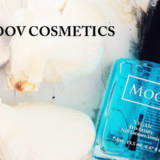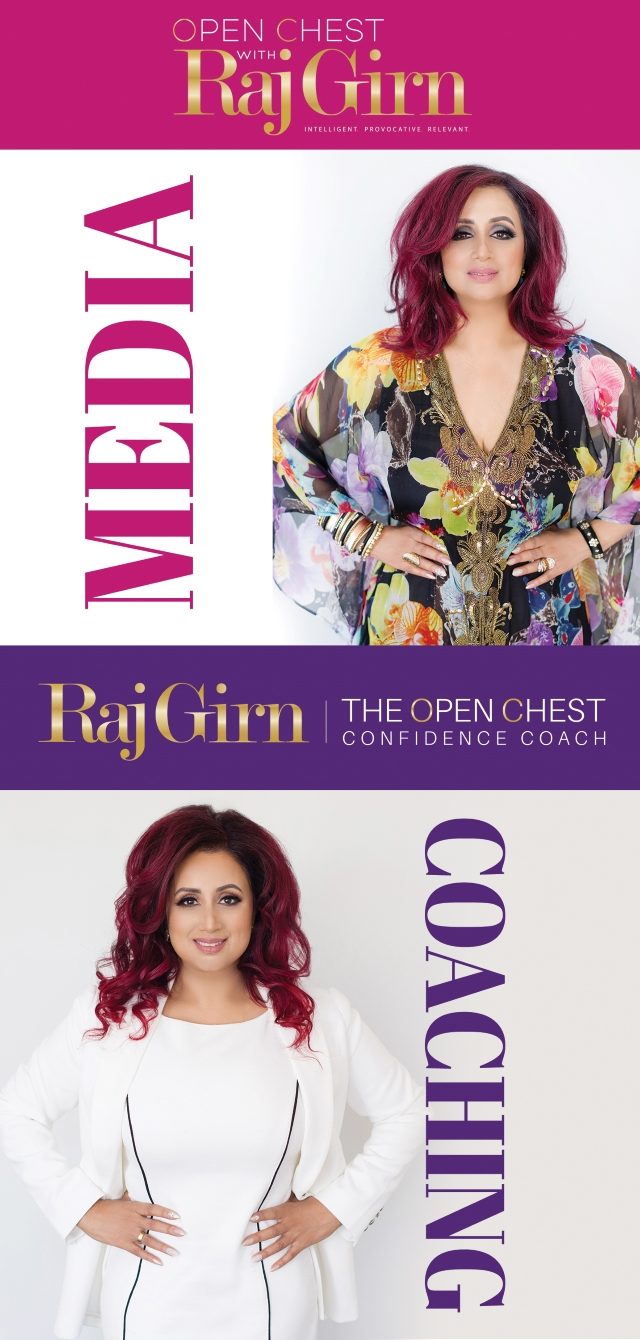I chat with Award-Winning Actress & Writer and my long time girlfriend – Pamela Sinha. As the creator, writer, and as one of the principle actors of this feature length film, Pamela is the triple threat that was needed to bring this story to this medium, so that as many people as possible can benefit from it’s visceral depiction of Suicide Survival, Depression, PTSD (post traumatic stress disorder) ‘Happy Place’ explores a time when 6 very different female survivors spent time together in an in-patient care facility. A PTSD survivor herself, Pamela has long championed the need to create understanding and normalcy around this much misunderstood condition, and this story has been created to do just that!
WATCH THE FULL INTERVIEW BELOW . . .
Folks, this is Pamela Mala Sinha, and we are on a great conversation for Open Chest with Raj Girn Live. The topic today is why is Happy Place a must watch film? So, why is a Happy Place a must watch film? That’s the question that we’re going to be answering. My special guest is award-winning actress and writer Pamela Mala Sinha and before we get into the topic, I just want to share a little bit with you all about her. So, Pamela is a Canadian actress who has been in shows like ER, Huff, and Newsroom, just to mention a few, and has numerous film credits under her belt.
She is also a writer, having penned the screenplay for a solo debut play called Crash, which you received Canada’s prestigious Dora Mavor Moore Awards for outstanding new play and outstanding lead actress. Pamela is currently working on her third creative project, which is a series called Nirvana, which will be seeing its world premiere at the Royal Manitoba Theatre Centre in Winnipeg, followed by its Toronto premiere at Necessary Angel in the fall of 2021. Most recently, Pamela’s half hour dramedy, Maya, has been optioned by Hawk Eye Pictures in Toronto, and her writing has been published by Random House and Sirocco Press in Canada, as well as Bloomsbury Publishing in the U.K.
Now, you’re probably wondering what happens to the second creation. We went from Project one to Project three. Well, that’s what we are here to talk about today, folks. Pamela wrote the critically acclaimed play Happy Place, which has now been made into a feature length film after being on the theatre circuit for some time. The film is by Sienna Films and is executive produced by none other than Helen Shaver. The film is currently on the Canadian Film Festival circuit until October the 18th. I encourage you all to do so because the film is about a topic that we need to understand and support far more than we have been doing in the past as a society, as a collective, especially now with what we are all facing globally with the current health and economic crisis.
Happy Place is about six women who meet at an inpatient care facility who have experienced some form of sexual and or psychological abuse, which has then led to different forms of depression and post-traumatic stress disorder, more commonly known as PTSD. Guys, we need to spread the word about the film, it’s called Happy Place, and we need to have more opportunities for people to be able to get access to projects like this. Now, to find out more about the film, my long-time friend, the fabulous Pamela Mala Sinha. Pamela is someone I’ve known since 2002, since the very beginning of my journey in media. She was one of my very first interviews we’ve had. We’ve had quite the life since then. I want to formally welcome you. We have chatted so many times in print, online, on camera, and it just never gets old for me. There’s always so much for you and I to talk about. And today’s topic is so, so important to me. And I know it’s important to you. Let’s talk a little bit about why did you decide that you needed to write the screenplay right off the bat?
Well, I didn’t decide that. That’s such an interesting question, because it’s sort of I felt compelled to write it. I wrote a short story called Hiding, which I recommended not because I wrote it, but because it’s part of an anthology that was edited by Carol Shields. Wonderful Carol Shields. It was called Dropped Threads 2. And it was short stories of things that people don’t generally talk about.
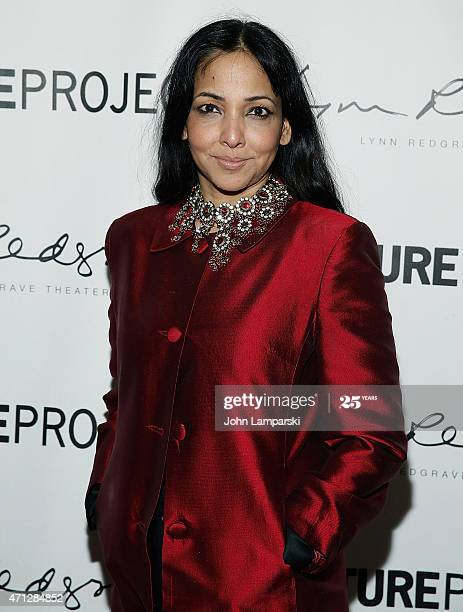
I wrote a short story called Hiding, which was about living with PTSD, and I thought that was it. I wrote that in 2005. I thought that was it. I am an actress. I’m a writer. Then after I wrote the short story, I had an opportunity to write more. My husband is a very famous playwright and mathematician, John Mighton. I told him he should write a play about what it is to live with me, what it is to live with someone with post-traumatic stress disorder syndrome. And he said, ‘why don’t you?’ And I said, ‘because I’m not a playwright, that’s why’. He like, ‘who says? You’re the only one who can tell the story. You should tell it.’ So, I created Crash from that short story Hiding.
So, when Crash premiered, I was so determined not to let anyone know it was autobiographical. I wanted it to stand on its own as an artistic entity. Not have people be taken out of it by thinking, did this really happen? So, I never, ever promoted it is autobiographical. It was quite a journey for me to go from that place to where I am now, where I completely own it. But as an artist, I was very protective of the piece. I didn’t want it to be about me. I wanted people to see what it was to grieve. And it’s not about sexual assault. Crash is about love. And it was after Crash that I thought, you know, Crash is really specific to my own story. Now that I’m a woman of a certain age, once you get to your forties, you know, it’s like, ‘oh, my God, everyone’s depressed around me.’
Wait until you hit fifty, darling. Things turn aroud because I feel fabulous.
Oh, I can hardly wait but no, I mean like I was hitting my forties at the time of Crash and I was like, ‘wow, you know, this is my story. I heard so many women around me, so many people around me who are suffering from depression.’ And it’s not depression for major trauma or sexual assault. It’s just, you know, sadness, a deep sadness. People feel very guilty because they don’t have room or space to experience that or be allowed to. I mean, God forbid you should mourn your parents who died from natural causes longer than six months. You know, it’s like we’re not permitted to feel pain.
I thought, why don’t I write a play about the many faces of depression? I had gone to an inpatient care facility in Los Angeles where I met women that I felt like I had nothing in common with, and they made a huge impression on me. Happy Place is a composite of some of the women that I met in that hospital, also women that I know, also women I’ve created for my imagination, my greatest fear. There’s a character of Nina who’s really how I feel like I’m going to be in the world after my mother dies, so it’s drawing from myself, my experiences, people I know, and turning it into these seven women that you meet in Happy Place. The only autobiographical piece of that is the role of Semira who played by the brilliant Clark Backo because I can’t play twenty-five anymore. [both laugh] So why not cast a gorgeous, gorgeous girl to play myself. But she’s not myself. She’s really a creation of Clark’s taking the given circumstances of my own specific situation and putting it into this world.
Do you think she did justice with your experience?
I think she was phenomenal. Yesterday, we had an interview for the St. John’s International Women’s Festival and the interviewer asked Clark, how much of Pamela’s story did she tell you? And Clark said that she’d asked me, what do you want to tell me about what happened in that room? And I said, I don’t remember saying this, but she said I said nothing. I mean, you know what’s in the script, but she’s your creation, so around all the facts that you have, you have to build and take ownership of that, right?
Did she play it with you in mind? Or did she stay authentic to what you wrote.
I think she approached it as an artist who took these given circumstances that she was given in the short story, hiding in the plane crash and in the script of Happy Place that she’s learning and memorizing and built something that’s all her own. And all I can ask as the writer and as a survivor is the truth is told. And she really went deep into the truth of the Samira that she created.
Yeah, absolutely. I want to tell you that I have had the opportunity to see the feature film, and I decided to hold off from seeing it until right before you and I were to sit here today. And the reason why I wanted to do that is I didn’t want my mind to, you know, go from the emotionality and the palpable human experience of watching the film into kind of that intellectual academic space, which is where you tend to go if you sit with something long enough, right?
So, I want to share with you that I felt that the film was incredibly haunting, I feel it was haunting because there was so much of myself and people that I’ve experienced in my life, I experienced in my life today who I could see and all the women, including the doctor. How you built out her feeling around her need to help these women empower themselves was incredible, especially in that part where she just almost broke down by saying, you know, even this little girl that I helped knew that she is the one that is the good one. And I hate those words good one.
No but I understand. You don’t know how happy it makes me to hear you say that, because that’s the intention of that story. It’s that little child who did everything wrong. Don’t go to the playground alone. Do not go with strangers. Do not trust anyone. She did everything wrong and she knew that she was good. That self-love and that absolute unequivocal. It’s not my fault. I carry no blame. It doesn’t matter what I did, what I wore, where I was walking, who I was with.
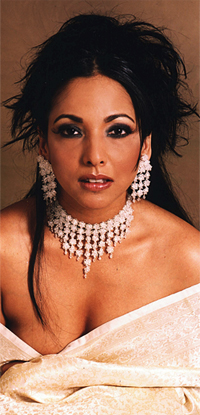
Nobody has a right to hurt me. And that this little five-year-old knew that. And so many of us don’t. We need to believe that there was something we could have done. And society often tells us there’s something you could have done. Like, why don’t instead of teaching our daughters how not to be raped, why don’t we teach our sons not to rape? Thank you for pulling her out, because I think that was a very difficult role to embody and a difficult role to write, because, you know, the doctor knows everything, but the doctor is a human being. And you can’t make somebody love themselves. You can’t force that on them.
I felt that this was an ode to self-love. I felt that the story was an ode to actually understanding that no matter what you’ve inflicted upon yourself or you have been inflicted upon, that self-love is kind of the foundation of the greatest human experience. Like I really felt that powerfully in all of their stories as we weave through the story and just how you beautifully bought, and this obviously is kind of a credit to the team, the cinematography, the lighting. Girlfriend, you got to talk to me about this, everything was so on purpose. Can you break that down a little bit from your experience?
Helen Shaver, the brilliant Helen Shaver. In fact, her Lovecraft Country episode just aired. The episode she directed was all in Korean, by the way. She had a translator helping her to communicate while to direct in Korean. So that’s what she directed the entire episode. It’s a beautiful episode. Anyway, she’s a very, very gifted and intuitive director. She’s been directing for 30 plus years. She knows her lenses. But I think she said something that really struck me yesterday. Again, in an interview, she said I needed the place to be very beautiful because the internal life of these women was so dark. She said I needed to create an environment where it isn’t about the wonderful family you have or the children you have or the home or the financial stability that these things don’t fix what’s broken inside. So, to be in this beautiful, beautiful place. I mean, so much of the film is shot in natural light. Right?
Those windows. That lake house. Where was it? A lake house on Lake Rosseau?
Yeah. Lake Rosseau. A beautiful house but yeah. So, she needed that. And Jackson Parnell, who she works with, is a young man in his 20s who is brilliant. The incredible thing about shooting this film was even though it was all these women directors and producers, the men held the sides, the crew was astounding. This crew of grips and electricians, camera crew, camera operators, these young, strong, beautiful men were the container for us to create the story. It was just an absolute joy.
The backdrop on where we saw these many stories emerge and intertwine with such a juxtaposition and it beautifully brought about just how stark, in contrast, what they were experiencing was. So, if that was intentional. It happened.
You know, it’s a counter to what what’s going on. The darkness inside.
Absolutely. So, let’s talk a little bit about why you chose women. Why were there no men here. Talk to me.
Oh, that is autobiographical. The facility I went to in L.A. is women victims of violent crime. It was the only place that was an inpatient care facility because it was not in Canada. There are psychiatric wards on hospitals, but I don’t know of any inpatient care facility that caters to women.
Well, that’s a tragedy right there. That’s something that needs to change. That’s another reason, folks, that this film is so important that you access it, you talk about it, you share it. It is on a number of film festivals across Canada until October the 18th. Is that the only way that we can access the film right now?
Yeah, so Ontario’s done and unfortunately all the film festivals are geo-blocked. So, the Vancouver International Film Festival opens today. It’s an official selection. So, everybody in BC can see it. And also, in Calgary it opens tonight. And then it goes to Edmonton. I believe that Alberta, Saskatchewan and Manitoba can access the Calgary and Edmonton Festival websites and then it goes to then St. John’s International Film Festival. So, if you’re on the East Coast, you can see it there. Then after that, it’s all in the works because it’s a Covid world, right? We can’t have a theatrical release. It’s obviously going to stream. So, the Canadian and International release of the film is currently in the works.
So, let me ask you about that a little bit, Pamela. I mean, this film is in partnership with CBC, right? Sienna Films. You have numerous Canadian grants that supported this. Let’s talk a little bit about that story again. And then, you know, are we going to be seeing it syndicated on TV with CBC distribution? Let’s talk about that whole part of things.
Okay. I don’t know how much I know about that.
Whatever, you know, girlfriend.
[both laugh]
So, we have an incredible support of Telefilm Canada. I know there’s a huge push right now for diversity and representation. So, that was just before that, though. The whole BIPOC thing. But this was two years ago. So, Telefilm right off the bat, Stephanie at Telefilm supported it. So, we had 40% something like that of our funding from Telefilm. The producers did everything they could to get the other grants. So, we had Ontario Creates give a huge chunk of money and NOHFC, which is a northern film fund. They came in because we were shooting up north and tax credits and a lot of differing on the producers’ behalf, differing on the directors’ behalf. I deferred. We needed to make this film. It was a real labour of love. Nobody’s going to get rich off this movie. It’s not a commercial hit.
But you don’t know that yet. You don’t know.
I don’t know that. But she said it’s a seminal film and it’s a timeless film and it will find its audience. One thing about this whole Covid thing, I mean, I was really, really sad about the fact that we’re not watching it in the theater together, because when you make something like this, you want to sit in the audience and feel the audience see and experience what you made. We’re all in our own houses, in our pajamas, in our beds or whatever, watching it on a TV screen. And I have got to tell you, some of the letters and calls and messages I’ve had, all I’ve been doing is crying and laughing for days. Like, it’s just so beautiful, but we’re not together.
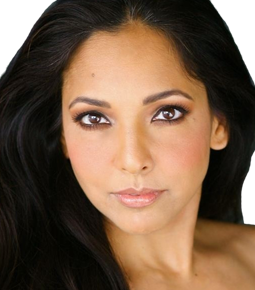
My best friend, Damon D’Oliveira, a great producer, he produced Book of Negroes. He’s one of my best friends. And he said to me that the reach of this film goes beyond a theater and a film festival. And that’s what you have to really, really, really, really focus on that. There are many, many people who are watching it and we just saw this in Ontario are not people that would go buy a ticket and stand in line at a film festival. They’re more likely to turn on Netflix, right? I think the reach has been immense. And I feel like isn’t that why we made it? The intent of this film was to reach people who feel alone in it and whether it’s you or someone you love or someone you don’t know is sitting next to you, somebody on your street.
I mean, we are all carrying something and maybe it’s not the size of mythic trauma like Samira carries. We all carry something, and we all need the space to feel it. And we need to be legitimized and validated and feel less alone. And I didn’t have a story like this when it happened to me, I felt very much alone in it. I had the best family, the best friends. I had the great good fortune to have the support, even though I didn’t have it in this country in terms of a facility. I had my parents, I had my family, a great family. But those of us who don’t have that, you need art to make you feel like you’re part of a community. That’s what we try to do with Happy Place.
Absolutely. So, I know I asked you this off the top, but I want to ask you again, why make a film, I mean, you went on the theater circuit with this, right? And I know that is like truly the most raw, upfront experience that you can exchange with an audience. Is it just purely because you want the story to be more accessible, or was there something else? Share that with us.
Well, I never intended on writing. I have never written a film before.
But you did a great job.
Thank you. So, I think when the producers optioned it and wanted it to be a film, the first thing that came to me is, oh my God, more people will see it. It took some time, you know, like if you look at a stage of this. You know, the distance between this and this takes time, and I feel like the film was this right to go through the play, enter the point of view of characters, which you can’t do on stage. You’re seeing it’s filled with characters. Your eye will go wherever it goes, but in film you can direct the audience’s eye where you want them to see, where you want them. And so that’s number one.
So, on stage, the audience works with their own imagination and on screen you take them where you want them to look at. The other thing is I have this incredible tool of being able to go into the mind of Samira, and you saw that we don’t want to give too much away, but the flashback sequences, those sequences of her imagination, where can I ever do that on a stage? The psychic journey that she has to take internally is only accessible to me through cinema. And it took some time to understand where I could lift Happy Place to a different place. And it was my adjustment from what I can tell, looking at a film and how I can go through the film to tell her story. And pull her forward as a protagonist because remember Happy Place is an ensemble piece.
You know, there’s no lead. But in the film, you need a protagonist and she was my access to the internal journey that we take as someone who’s deeply depressed and suicidal, how do I access her internal life? And I could only do that through cinema. Interestingly enough, by doing that, the other characters were not cheated but came more forward in their storytelling, In their own stories through her, we met a more deeper version of them than on stage. I mean, both have such great power, but I mean. I don’t want to give too much away, but there’s so much in the film that I knew within the character’s heart on the stage, but I couldn’t access that.
Right, absolutely. And just the fact that you control the eye of the viewer, that’s the fundamental difference I feel because you really did control that well. I was very, very clear on the journey that you were taking me on and my heart was pounding throughout all of it because I knew that as we traveled through the film every so often, you were going to give me a little bit more, a little bit more into, you know, the journey of Samira that she comes to towards the end of the film.
Can I also ask you something about kind of the setting? I mean, you know, we touched upon it a little bit, the lake house that was chosen, the massive windows, the lights that kept coming in almost like begging them to extinguish the dark that was in their experiences. It’s like I felt that continuously throughout the movie. The other thing that I wanted to also share with you was, that hallway. The hallway and the spiral staircase. I don’t want to say too much, but I do want to maybe ask you, because then obviously the conversation can be controlled to where you want it to be controlled to without giving away too much. Can you share some of that? Can you share a little bit about the hallway? Can you share that spiral staircase that we look down, that she looks down?
Yeah, I have to tell you, that’s all Helen Shaver. She saw that. She saw many, many locations. The writer is not involved in that. I write the script and then she has to find how she wants to tell her story because, you know, film is a director’s medium. It’s her interpretation of my words and what I do. She saw that house and that was the end of it. And it was actually for I think it was for sale. And so, I believe the head of locations saw it on a for sale thing and we asked to delay the sale and rented it for the month. So, a big, big chunk of the budget went to that rental of. What was really needed is a massively rich individual and they had twelve bedrooms and that hallway like we didn’t build any of that. So, our dressing rooms for the character were our assigned character bedrooms. When I wasn’t shooting, I was in bed as Rosemary would be reading or whatever on my phone or whatever, Rosemary’s room was my room the entire duration and same for Samira.
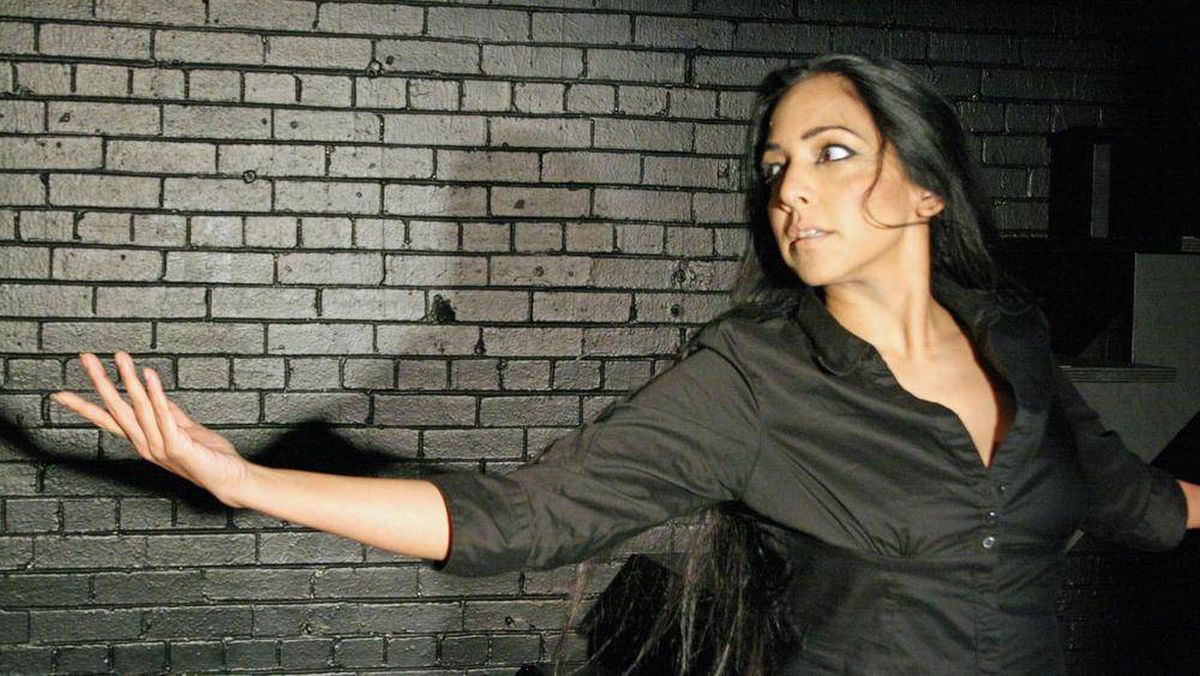
So, how do you feel that lend to you staying in character?
Yeah, well we weren’t really in character. I just mean that the environment that we were in as through a long 18-hour day that you’re shooting for half of that and hair and makeup and then you’re like sitting around for hours or napping or whatever it is that you need to do, looking out your window. You’re in the environment of the world. I think subliminally it’s just there. It’s not something you do consciously. And then the other thing is Helen used to call it movie cam. She really wanted us all to leave our Toronto lives behind.
So, we all stayed in the Muskoka Marriott. We all were there. We’d eat dinner together. We had our days off. We’d see each other in the hallways or down at the lake or go for a walk. We went home when we could, but most of the time we were staying in the hotel. It was such an incredibly generous thing for the producers to make that happen. All of the actors could be away from Toronto for that time. It’s incredibly expensive to put all of the crew up and it’s huge, right? Because you’re on location and it’s a Canadian film, right? We don’t have millions and millions of dollars. But they felt that that investment was not only just for our comfort, doing a very difficult shoot, but psychologically necessary for us to feel that we were cocooned together.
Then the other question you had about the hallway, so I was in many, many conversations with Helen and the producers, like, what is this? It’s in her mind. And this door and this lack of action on her part that she believes is lack of action and these flashbacks and these flashes, and I said but they’re not flashbacks, they’re flashes, and Helen had this genius vision of this floor and this hallway. From what I described, she created this psychological, very often literal entrapment for Samira. That she needs to break through, so she not only needs to break through it in terms of her heart and the self-love you were talking about, but also in terms of her psyche. That was built in studio, they built that for us. That wasn’t a location. My heart was in my throat because Helen was like, I want you to come to the studio, but it’s already built, and I want to see it. And I walked in and I was like, Oh, my God. Like it was really her vision. Absolutely her vision and it was the right vision.
Why did you have that ‘Oh my God’ moment when you saw that, what was it about that?
I understood it. You know, I have never articulated it in terms of wall and a floor and a door. I just know my apartment and I know where it happened. But to see it, it’s so stark and vivid and dynamically. And yet completely different from reality. It captured still the feeling. And it’s beautiful. Again, she goes for the beauty, which cuts to the heart of everything, doesn’t it?
Yes, absolutely does. And, you know, as someone that hasn’t experienced this, when I saw that hallway and the way it was lit. I felt that my freedom was being taken away from me. I felt almost like a moment out of her expansive experience, you know?
Beautifully put. Yes. Wide, wide world of that hospital and the lake and the rooms in the great hall and this mazelike labyrinth. I think that’s where the staircase you’re talking about. It’s a labyrinth that’s a literal labyrinth of that house, but it’s also you know when Celine takes her through the back and the art room and in the back stairs, in the laundry room and then up the stairs. It is a labyrinth. And it’s the labyrinth in her mind as well. It’s a great reflection, an echo of her psychological state, which, like I say, look at the director. She knew this was the right place.
Pamela, and you get that like as the person watching it, like everything you’re saying right there, I got that. It wasn’t difficult to understand that the lighting, the journey as you kind of travel through the physical space was very purposely aligned with what was actually happening within the internal space of these women. I’ve got to ask you. Why did you pick to play that one particular role of all the women that were there? Because, I mean, you could have been any of them. Why that one?
Well, because I am a stepmother in real life. Even though the story is completely different than my own, I understand what it is when people measure your love through biology. That somebody who hasn’t given birth to a child, I’m not talking about adoption. I’m right about step motherhood. The comment I get the most I mean, Chloe’s in her 20s now, but it’s so great how you love her. It’s so great, you know, it’s like what’s great about it. She’s my child and her mother and her father created this child that I love and have been generous enough to share her with me because of her dad and I were together when she was younger. And then we broke up for many years and now we’re back together again.
And in those years, that mother and father made sure that I was a co-parent, even though Rosemary is so diametrically opposite to my story, I just felt like I wanted to embody somebody who feels like the world does not recognize the measure of their love without the parameters that legitimized that like, oh, well, if you’re married to your dad. Well, I’m not married to her. I wasn’t for a number of years, you know, or if you can’t have kids of your own. I could have kids of my own. Is she a child that you love by default because you couldn’t have kids of your own? There’s no default about it. So, all these things, even though they’re not Rosemary’s story, they fed the creation of that character. I wrote that because I wanted to put out in the world that there are people, men and women who take on the risk and the vulnerability of loving a child to whom they have no rights.
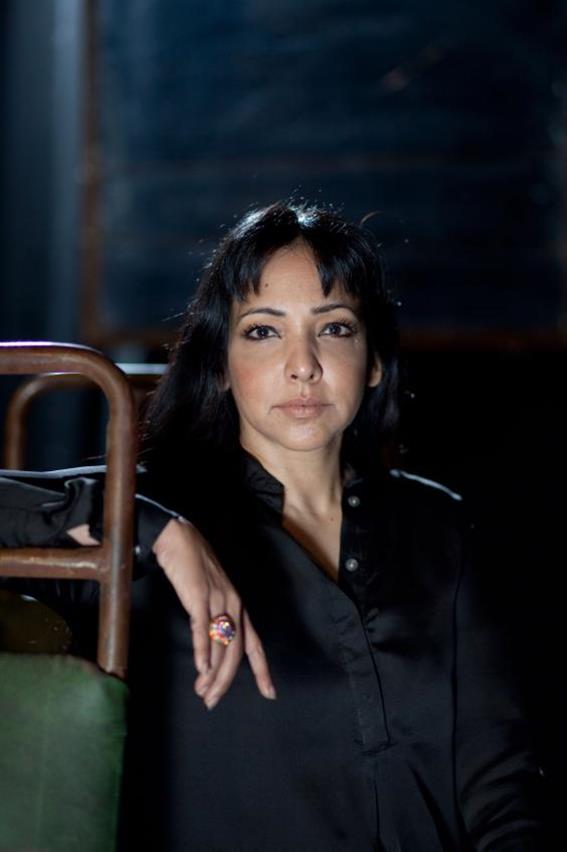
And you know, it’s so interesting you say that because it brings us right back to that whole kind of central theme that I picked up on, and that is just the whole idea and concept and definition of what we deemed to be love or our permission or lack thereof to love and be loved, you know? I feel that also echoed quite loudly in the characters, especially the character of the one woman that lived a certain life before she met her husband and just grappling with, you know, the duality of that and the secrecy of that.
Yeah. The compartmentalization, right? And we all do that, right? I said before and after. Before doesn’t count. Just before I leave, Rosemary, that character to me makes all the wrong choices. Like, she doesn’t have the wisdom I have. If it isn’t going to look a certain way and she doesn’t want it. And who is it that won’t give up on her? It’s the child.
Right. I know it killed me.
So she’s like, if the world won’t recognize me, then I don’t want, I don’t need that love.
You know, the interesting thing is, what is this world that you’re deeming to be the definition of what is right or wrong? Who is it that deemed it right and wrong and how do they matter to you when you don’t even know who they are? That determined that this is how you should live, or this is what is right and wrong. But, you know, now that you’re coming to that, that one scene with the sun. On the other side of that window where the light was and the darkness within which she stood on the staircase, I mean, I don’t know if that was purposeful, but it was talking to me, sister.
Purposeful. I love you, I just I love you. You got everything. Oh, my God. I wish Helen was on this call because she would be like Holy cow, who is this woman. We’re very proud of the film because one of the reasons I’m very proud of the film is because it’s so unsentimental. And it’s not precious and it’s subtle, there’s no hammer over the head, you got everything as if it was a hammer.
I think what it is, Pamela, is and I know that you can attest to this on some level, even though we had a very different upbringing, as a woman that is brought up in a very defined culture. I say woman and defined culture and I have that. And I did all the things that weren’t what you were meant to do, like, get divorced and all the things that I’ve done in my life have gone against the grain of what I was born to do and be which was the perfect wife to the perfect man. The perfect mother to the perfect child, you know?
So, I haven’t lived that narrative, albeit I am proud to say that I think I’m a fricking awesome mother. I think I’m a fricking awesome daughter. I do believe that even though my journey wasn’t the one I was brought up to be, it is the journey that I was meant to live so that I could help others understand that their journey is just as important as anyone else’s journey. If it’s the one they’re living that’s right for them. I feel that has a lot to do with kind of why I got the film, kind of why the subtle nuances of the film just really spoke like loud horn bells to me.
Right. I mean, from what I know of you and what I see of you and what you’ve done for our community, I mean, not just our community, for all of us. The voice, like empowering yourself and feeling not seen, and we need to be seen and we need to see each other. But we can’t see each other until we see ourselves. So, that journey that you took to get to where you are had to happen. But It’s difficult. It is a difficult journey. When you read my bio I was like that jeez that sounds like the silver spoon, but it’s not. It’s not. I wake up and it’s always a negotiation with my depression on how loud the hum is going to be. I think of it as a hum. That negotiation and navigation is not something I can decide about. It just is part of who I am. And I walk alongside of that.
And that was beautifully said. That was beautifully said in the film that you have to find a place and I’m paraphrasing, but there was a poignant moment that you just mentioned there between her and the doctor, where the doctor says, I don’t believe that it will ever go away but what I do believe is that you’ll find a place to walk alongside it. That has got to speak universally to every single human that is living on this planet on some level.
Absolutely. And regardless, because we all experience loss, whether it’s loss of power or loss of innocence, loss of the dream of who you thought you’d be in your life. The loss of a parent, the loss of a child, anything that shapes you. That kind of loss, we all carry something of that or grief, whatever manifestation of grief there is. And I think that in North American culture, there’s a lot of pressure on conquering. The conquering of something or the getting passed or. Oh, my God, you’re doing so well. Like, when people say that to me, it just like I’ve had to teach myself not to get angry about it and understand that it’s not coming from a malicious place, but actually coming from a hope that they have that I’m over something. But I’m not over it.
Why do you need to be? Why do you need to be over it?
I remember being very angry for a long time. I’m not talking about the educated people around me in my life who have learned how to talk to me and how to express their solidarity with me. But I’m talking about the general person who like just yesterday, you know, like, ‘oh, my God, you’ve come so far. Isn’t it amazing? Don’t you feel like great?’. And it’s like ‘come so far? I didn’t get out of bed yesterday’, and instead of going, what are you talking about? Like don’t talk to me about coming so far, you don’t know my life.
Instead of getting angry, I’ve learned that it’s not from a malicious place and it’s not even from ignorance. It is from this inability, I think and I’m being very lofty here because I could be completely wrong and I’m not a psychologist, but I think that the people who love you and care about you or even know you peripherally can’t really face the prospect of being truly helpless. That they need to feel that you have some power over this thing that they can’t name because they need to have power over this thing in their own life that they can’t name. So, they look to you for hope. Instead of, like, going, ‘okay, they’re just being callous and diminishing of me.’ They just need to believe that you are better. Right? And it’s like but my better is not your better.
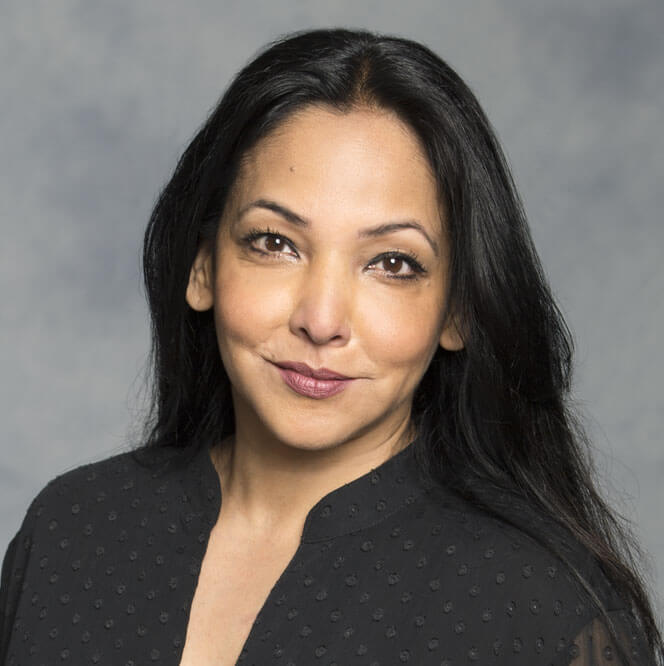
My better is I walk hand in hand with this thing and sometimes I feel the tug of it barely and sometimes it drags me right down. But I acknowledge its presence and by acknowledging its presence I can move forward. And your better is ignore it, compartmentalize it, put it away. That’s the past. It’s not relevant to my life. But you can’t walk into the future without taking the past with you. But what you want to do is not like Samira, who believes that if I just undo the past the way it happened, I can have my future. You have to be in your presence. You can’t be in the future. You have to be in this moment now. And this moment now does not exist. It can co-exist with this thing that you carry, but it cannot exist without it or because of it.
You know, I want to ask you something, because it’s off topic, but it’s on topic. So, there’s this whole kind of ideology that we live in today where we say that you can only live in your present because the past you can’t change in the future hasn’t come yet, right? Your thoughts on that? Because it’s almost like there’s an underlying theme of what’s happening in a Happy Place for me when I was watching it, that the present is the only moment you can control because the past you can’t change, and the future hasn’t happened yet. What are your thoughts?
I think that’s true. It’s very hard to be in the present. Though that is true, I think with trauma or loss or grief or anything, you cannot truly be in your presence without acknowledging the past. It’s part of you.
And visualizing your future. I think that all three of those dimensions of human experience have got to walk together. See, that’s kind of where I am coming from. Like people say, living a present because you can’t do this. You can’t do that. And I don’t believe that. I believe that all planes of the existence that you know, or you hope for have a have a result on how you are today. What you envisage for your future is going to mark what you’re going to do today and perhaps it won’t. That’s a whole other discussion. What happened in your past has a lot to do with how and what you feel today. Like it does.
It does, of course. You can’t compartmentalize, you can’t deny or conquer or get past.
It’s a sea. Life is indicative to the big body of water that surrounds the Earth. It’s who we are as a human race. And I feel that coming to kind of the end of our discussion here, even though I feel like we’ve only just touched the precipice of our discussion.
Really? I’m so sad.
Oh, my God. Me too, sweetheart. So, I feel that, you know, for those people out there who don’t quite get how abuse can create, whether it’s abuse to self or inflicted upon you, right? How they can’t quite understand how that correlates over to different forms of depression and correlates over to PTSD and all of these other things. Can we somehow encapsulate what they need to hear, those who are ignorant towards this, like why is this important in our world as humanity today, especially the kind of year we’ve had? I feel that there’s a reason your film came out this year. I really do. Give me your thoughts, because you know me. I believe that everything is on purpose. I don’t feel that anything in life is an accident. And I know that you beg to differ. But talk to me here. Tell me your thoughts.
I think that if we don’t have compassion for each other, we’re just not going to make it. I mean, it’s just that simple. Part of the motivation for writing Happy Place is I feel like we live in a society where there’s a hierarchy of pain. In the film, where certain people believe that certain people have a right to be there and certain people don’t have a right to be there because the size of their trauma doesn’t match the other one size of the trauma. The number of times I can tell you that a peer of mine has said, I had a terrible day, I couldn’t get out of bed, not like you when you can’t get out of bed and it’s just like, my God, these are smart, beautiful, complicated artists who are telling me that I have more right to not get out of bed than they do.
Because they didn’t suffer a break in and assault, right? And I just think, my God. But that’s reinforced. We reinforce it over and over. So then do I say, okay, well, a woman who was gang raped is worse off than me or someone who was date raped is less worse off than me because she knew him. Like, you cannot measure suffering and there is no hierarchy. If I’ve accomplished anything with this film, that’s what I’m trying to say, is we all have a right to that space. So that’s one thing in terms of community and in terms of self, we need to understand that we are not alone. We are not.
And we are so alone right now in this Covid world. We are in isolation constantly. But your depression, your sadness or your inability to even make a sandwich. You have a right to that and that you’re not alone in that. You have to find a collective strength in all the things that we live and walk through in life. And we’re not going to do that without compassion. And that means compassion for self, compassion for each other. I mean, we were talking about if you don’t have compassion for yourself, you can’t have compassion for the other, but maybe the other is access to self, if you had compassion for your neighbor. And maybe you can kind of understand that because if I can understand her, then why am I judging myself?
There is a relationship between the external and the internal and the inflicted on the inflicted upon. I feel that understanding that relationship, I think is also a part of how we are able to sit with it as we live through our life. I do believe that is a part of it, too.
Absolutely, and I think parents and friends and relatives or whatever, you know, if you don’t understand, just step into their shoes. You know, like there’s a wonderful philosopher who I always forget the name of but he says that the point of art is to allow an audience to whatever audience it is to a sculpture or a film or a play or a book or whatever, that to allow someone to step into the shoes of another person, to know what it is to be that person and without judgment, without a point of view, just step in because you might learn something.
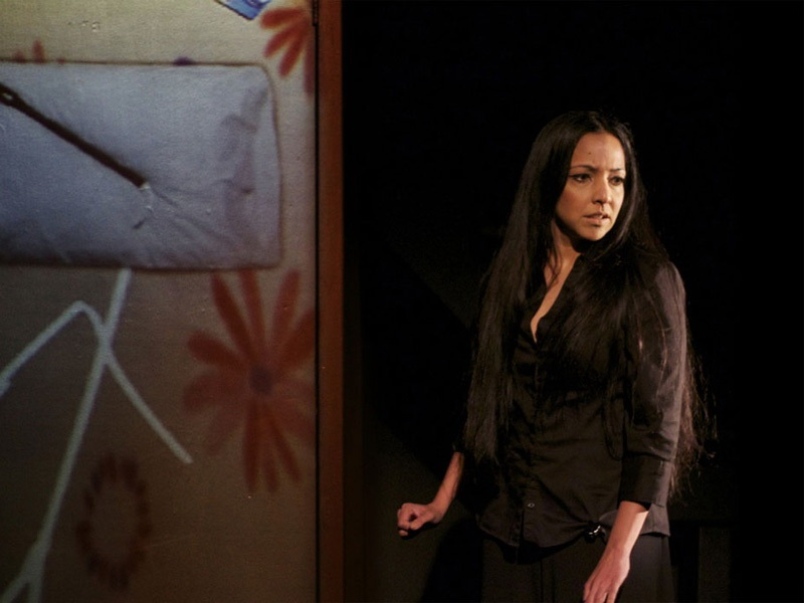
Even about yourself and being told that we have two minutes left. And I’m going to ask you this, Pamela, for anyone out there that is suffering suicidal tendencies, depression, PTSD, anything all of the above all like, what would you say to them?
I’d say call the suicide helpline right away. I don’t know the number for that, but I think if you call 911 they’ll send you there. And the other thing I would say is you are not alone. You are not alone. You are not alone. To anyone who is suffering depression, PTSD, self-destructive urges, you are not alone. You know that your pain is real and is not to be judged. And no one is going to take it away from you. You don’t have to hold onto it so tightly that you feel like you don’t have a right to it. You have a right to it, but you have to know that you are not the only person who’s ever felt this way. You are not alone. There is love. There is community. And that today is not the only day.
Right. That is so profound. Thank you so much, Pamela. What an incredible, incredible insight into such an important film. This is a landmark film, guys. Happy Place. I wanted to ask you why you called it that, but we’ve run out of time. Do you happen to have a couple of seconds where you can tell us that?
Yeah, it’s in the scene, in the art room, the collage exercise that the women are told to do. It’s an exercise where they have to look for their happy place. And I just thought it was so incredibly ironic that it’s counterintuitive to the place that they’re in internally. I just thought it was perfect.
It’s absolutely wonderful. Thank you so much, my love. I adore you.
I adore you, too.
Thank you so much. And folks, go and check out this film. There’s also going to be loads more that they’ll be updating as and when things come about. Pamela, I adore you, I love you, and I can’t wait for our next cup of tea.
Okay, all my love. Thank you so much. Bye bye.


